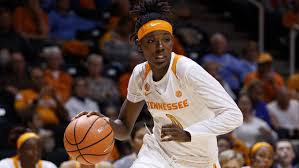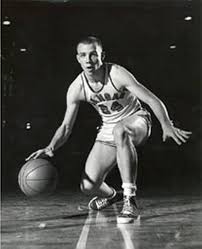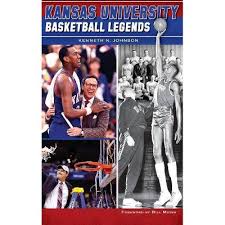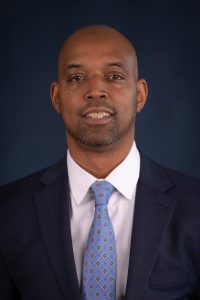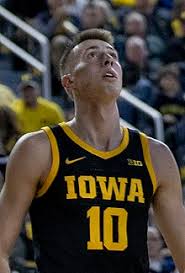CLICK HERE for all of Hoops HD’s Continued and Extensive Preseason Content
We hope you are ready for a season unlike any other: testing, distancing, and bubbles, oh my! Nobody knows exactly what is going to happen, when it is going to happen, or whether anything actually will happen…but in the meantime we will try to restore some order with season previews featuring the best players/coaches/administrators in the country. We continue our coverage with Duquesne Director of Player Development Ashton Gibbs. He won a gold medal in 2009, was an All-American in 2011, and then played pro basketball for several years. HoopsHD’s Jon Teitel got to chat with Ashton about his ultra-athletic family and his expectations for this year.
You played for team USA at the 2009 U-19 World Championship: what did it mean to you to win a gold medal, and which of your teammates impressed you the most (Gordon Hayward/Klay Thompson/other)? It meant a lot. I was an underrated recruit at Pitt so to go from that to being the 6th or 7th man on the best college team in the country and then making the U-19 team was tremendous. We had a lot of great players on that team but Gordon/Klay impressed me the most. Klay was a great shooter (especially for his height) and Gordon could do a little of everything.
In 2011 as a player at Pitt you were top-10 in the nation with 102 3PM/49 3P%: what is the secret to making shots from behind the arc? A lot of reps, especially game reps. I watched a lot of film to see exactly where I would be taking shots from, then attacked it every single day. It was a simple process but a lot of hard work.
That year you were also named an All-American: what did it mean to you to receive such an outstanding honor? It meant a lot after all of the hard work that I had put into it. I just wanted to be the most consistent player in the country, which is what I prided myself on. Every day I would come in early to get up shots/work on my ballhandling/get in the weight room, then keep working hard after practice. It was a tremendous honor.
In your NCAA tourney career you had a 2-PT loss to Villanova in 2009/3-PT loss to Xavier in 2010/1-PT loss to Butler in 2011: what is the key to games in March that come down to the final possession? Mental toughness, which goes unsaid a lot of the time. Teams must be able to withstand runs and there were times when our opponents just executed a little bit better than us toward the end of those games. You need the right approach in practice because it will translate to games. You also need to shoot well: we were up and down a bit but Coach Jamie Dixon helped us make the right decisions on offense. We lost because of some great players on other teams who could put the ball in the hole.
After graduating you played pro basketball overseas for several years: what is the biggest difference between basketball in the US v. basketball in other countries? They are very detailed overseas and pay a lot of attention to skill work as opposed to people in the US who care about athleticism. You see that now in players who come from overseas and are able to have a lot of success in the NBA. Foreign players have a high IQ and really think the game through and make the right decisions, especially on offense. There are a lot more foreign academies for younger players so they build kids up in a way that allows them to be ready to play at the pro level.
You currently work as director of player development for Coach Keith Dambrot at Duquesne: how do you like working for Keith, and what do you hope to do in the future? I love working for Keith because I learn something new every day. He is a perfectionist and demands a lot but he is a Hall of Fame coach and the best is still yet to come. I ultimately want to become a head coach and just help our guys with whatever they need to do to further their own careers.
You lost Baylee Steele to graduation but bring back your entire starting lineup from a team that was 15-2 through your 1st 17 games last season: how crucial will all of that experience be to your team’s success this year? It is going to be big and I have seen it already during our group workouts. We have tremendous leaders and our young guys are doing really well at picking things up, which is huge. Building a solid culture is everything and our veteran guys help out with that both on and off the court. As long as we stay healthy then we should be good.
Your father Temple played football at Temple, your brother Sterling played basketball at Texas/Seton Hall/UConn, your brother TJ played basketball at Notre Dame, and your cousin Ashton Miller just transferred from Duquesne to Wagner last spring: who is the best athlete in the family? I am always going to go with myself! What made each of us successful is our self-confidence. TJ/Sterling were tremendous college players and now Sterling is having a great pro career. All 4 of us have carved out a niche due to the work that we put in every single day.
What is it like to be an African-American man in 2020? You have to be mentally strong right now because you are being tested. We have to come together as people and it is a great time to be a leader and teach others about our culture. Anytime I can educate my counterparts I try to do that because you do not know what you do not know. The great part of being in America is that everyone comes from different backgrounds, but the better perspective you have then the better we can all be.
What are your goals for this season, and what are your expectations for this season? To win the A-10 for sure, get into the NCAA tourney, and then win some games once we get there. To be honest our goal is to make the Final 4: it might sound a little unrealistic but that is how good we can be if we are all locked in and stay healthy. We have enough veteran leadership and great coaching so we have no choice but to have high standards.


